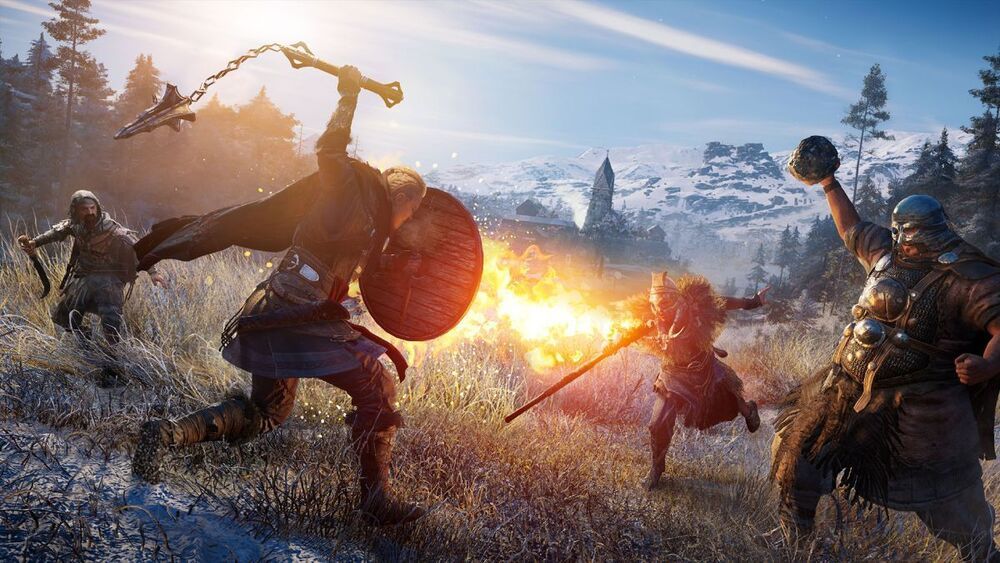EA, Ubisoft, Warner Bros, and more explore how artificial intelligence innovations will lead to more believable open worlds and personal adventures within them.
Most NPCs simply patrol a specific area until the player interacts with them, at which point they try to become a more challenging target to hit. That’s fine in confined spaces, but in big worlds where NPCs have the freedom to roam, it just doesn’t scale. More advanced AI techniques such as machine learning – which uses algorithms to study incoming data, interpret it, and decide on a course of action in real-time – give AI agents much more flexibility and freedom. But developing them is time-consuming, computationally expensive, and a risk because it makes NPCs less predictable – hence the Assassin’s Creed Valhalla stalking situation.
However, as open-world and narrative-based games become more complex, and as modern PCs and consoles display ever more authentic and detailed environments, the need for more advanced AI techniques is growing. It’s going to be weird and alienating to be thrust into an almost photorealistic world filled with intricate systems and narrative possibilities, only to discover that non-player characters still act like soulless robots.
This is something the developers pushing the boundaries of open-world game design understand. Ubisoft, for example, has dedicated AI research teams at its Chengdu, Mumbai, Pune, and Montpelier studios, as well as a Strategic Innovation Lab in Paris and the Montreal studio’s La Forge lab, and is working with tech firms and universities on academic AI research topics.
